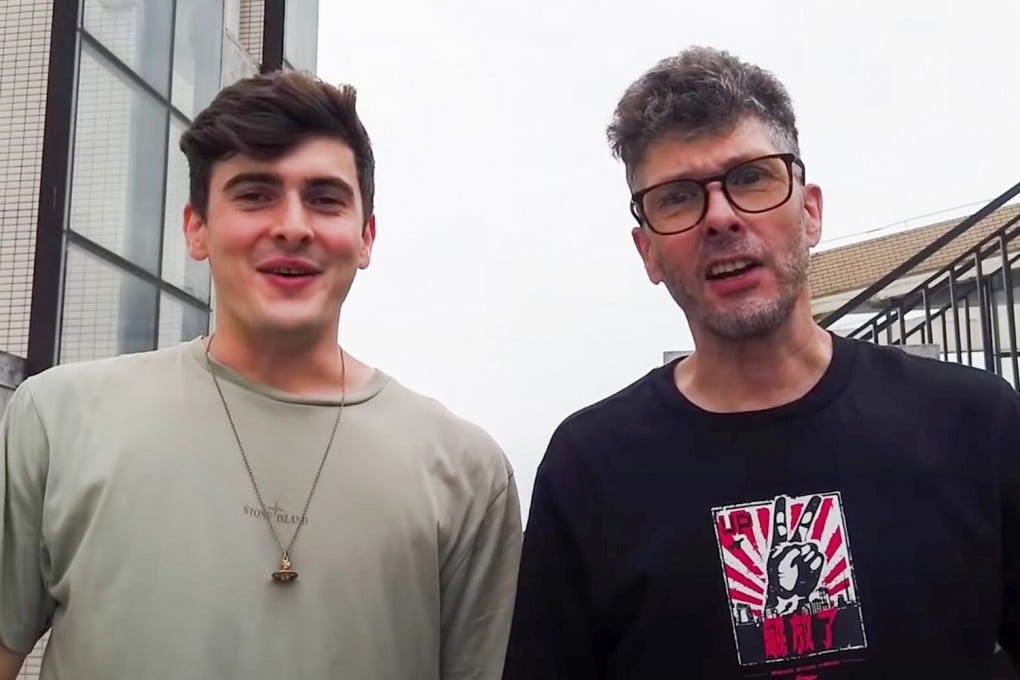US-China friction turns into YouTube fame (and laughs) for online influencers
- Defending or lashing out at Beijing proves a fast route to popularity on the video-sharing platform
- Many in the pro-China camp are based in the country, and the Hong Kong protests were a launch point for some

Lee and Oli Barrett, a father-son duo with a YouTube channel, inhaled two balloons’ worth of helium on May 22 and laughingly thanked online viewers for pushing them past the 100,000 subscriber mark after only 11 months. The key to their rapid audience expansion? Defending China.
The Barretts, British citizens based in Shenzhen city neighbouring Hong Kong, are not alone in finding that defence of China – or conversely biting criticism of Beijing – can be a fast route to YouTube success.
One of the most well-known pro-China YouTubers is Nathan Rich from the US, who goes by the name “huoguo dawang”, or Hotpot King.
In an interview, Rich took issue with his “pro-China” label, saying that he is no less pro-US or pro-Cambodia, but “it just happens that the Western media and mindset about Cambodia is more balanced and calm than it is about China”.
Rich, 38, said he was born in Los Angeles and made a career in the technology industry after teaching himself computer programming. He first came to China in 2012 on a business trip, and settled down in the country in 2014.
He started making videos in 2018 and today boasts nearly half a million subscribers to his YouTube channel. He could be regarded as representative of much of his cohort: white, male Westerner in China who films English-language monologues that seem to mirror the Chinese government’s line.